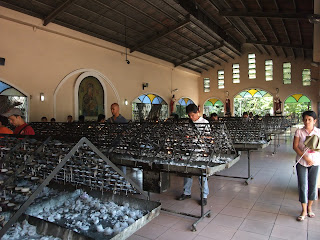it may be nonsensical but we do it anyway: 4th sunday of advent C

With all its appeal to reason and logic there are actually many things unreasonable, and should I say, even nonsensical in our relationship with God, don’t you think? I mean we are a practical people here but why do we have to get up early in the morning to attend the aguinaldo mass at 4:30 in the morning when there are other masses conveniently timed during the day. Why get up at 4 then and then feel drowsy and yawn the whole day? And except for the songs, it’s practically the same mass.














